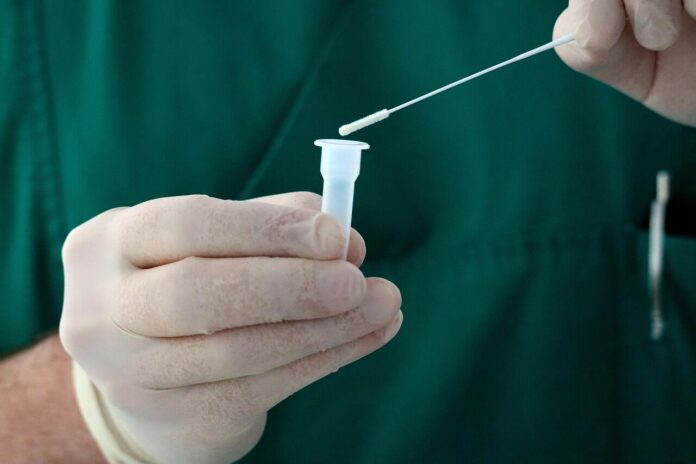The City of Trail has launched a new initiative to better support victims of sexual assault with the introduction of self-collection kits.
A press release from the City states that this progressive initiative offers victims the option to privately collect vital evidence in the aftermath of an assault.
The self-collection kits, called paceKit, are available to individuals over 18 years old in select B.C. cities, with Trail being the first to roll out the program.
The initiative was developed by the social enterprise Fourwords Solutions in consultation with law enforcement and legal professionals.
The need for such a program was first discussed at the City’s monthly Trail Community Task Force meetings, where representatives from council, the RCMP, the Trail Association for Community Living (TACL), and other groups collaborate on solutions to community issues.
Locally facilitated and funded by TACL, the kits are expected to serve the wider community, including individuals already supported by TACL through its multifaceted efforts for marginalized residents of Trail and surrounding areas.
“The process is simple and supported by our trained staff, who will be able to access the kits and space as needed,” says Sheila Adcock, contract manager for Career Development Services (governed by TACL).
“You collect and complete a kit at one of our facilities, we package it up, and it’s stored securely by the RCMP. Your name’s not even on it—just a number.”
Adcock says the self collection process is less invasive, as there’s no commitment to report afterwards.
Innovating support systems
According to Statistics Canada, sexual assault is the only violent crime not in decline, despite a significant portion remaining unreported.
To help bridge this gap, local authorities are introducing the option to self-collect evidence with the support of a trained frontline worker, providing survivors the space and time needed to decide when, and if, to make a report.
This option preserves vital DNA evidence for those still deciding whether to speak to authorities. However, evidence collection with a paceKit must occur within 48 hours of the assault.
While in-hospital exams provide more comprehensive evidence collection, the paceKit process was designed with chain-of-custody and best evidence collection practices in mind, according to Fourwords founder Chloe Hunt.
“The reporting rates for sexual assault are abysmal, but that’s not the fault of those who experience it. Right now, the number of perpetrators held accountable is very low, so our goal is to raise those rates while also making systemic changes.”
In addition to launching paceKit, Trail RCMP has updated its protocol for storing kits at the detachment, making them immediately accessible through trained Interior Health staff at Kootenay Boundary Regional Hospital.
“Sexual assaults often occur in the early morning or on weekends when authorities may be busy, so storing kits at the hospital eliminates wait times,” says Trail RCMP Sgt. Wicentowich.
“We also found that many survivors weren’t ready to report assaults directly to the detachment but would go to the hospital instead. Reports made by hospital staff are eventually passed on to us, and even without names, these third-party records help ensure credibility if survivors later choose to identify themselves.”
Local statistics
For several years, Trail RCMP statistics have shown a fluctuating increase in the reporting of sexual offences.
In 2018, there were 12 reported cases, which steadily increased over subsequent years:
- 2019: 29 cases
- 2020: 31 cases
- 2021: 34 cases
- 2023: 22 cases (a decline from 2021)
- 2024: 30 cases
The city says this upward trend indicates the success of local efforts to build stronger connections within the community, fostering trust and encouraging more survivors to come forward.
“We want people to come in, report their story, and take the sexual assault kit at the hospital with a qualified person—that’s the best evidence,” says Sgt. Wicentowich.
“But we understand that sometimes survivors aren’t ready to come forward to the police or a doctor. The paceKit is another option for those who want to collect evidence but aren’t ready to take further steps.”
The initiative is a pilot right now and its success will be determined through local reporting statistics, with Adcock saying the city hopes to see an increase in reporting as a result of the pilot.
“We’re hoping that there is an increase in reporting now that its not through the RCMP. A lot of people won’t go that route and assaults would never get reported. Whereas if it’s a third party report and the DNA and samples have been handed in, they might see a trend or the same individual and police may be able to stop this individual before they perpetrate again.”
Why Trail?
In rural or remote areas of B.C., paceKit is a vital tool, particularly when there is RCMP alignment and a local organization ready to run the program.
Collected evidence is securely stored by the RCMP for approximately 80 years or until the matter goes through trial.
Trail was chosen as the first location to roll out the initiative because of the prominent need for access to forensic DNA collection in the area.
Fourwords founder Chloe Hunt notes that the program’s rollout aligns with ongoing discussions about gender-based violence in the community, reinforcing Trail as the ideal location to pioneer the project.
“Trail is a great community with a lot of heart. There was strong alignment between community goals and this project. We’re happy to support the city on its mission to improve services with supplements to the system for those in need.”
The kits can be accessed at Career Development Services, located at 1565 Bay Ave.
Be the first to know! Don’t miss out on breaking news and daily updates in your area. Sign up to MyKootenayNowNews Alerts.






